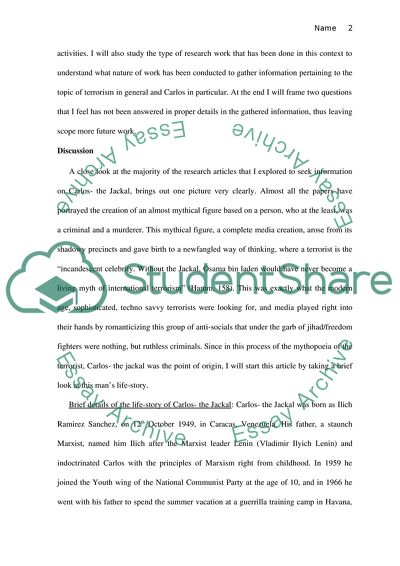Cite this document
(Carlos the Jackal: Romanticizing the Terrorist Research Paper, n.d.)
Carlos the Jackal: Romanticizing the Terrorist Research Paper. Retrieved from https://studentshare.org/history/1742605-carlos-the-jackalterrorist
Carlos the Jackal: Romanticizing the Terrorist Research Paper. Retrieved from https://studentshare.org/history/1742605-carlos-the-jackalterrorist
(Carlos the Jackal: Romanticizing the Terrorist Research Paper)
Carlos the Jackal: Romanticizing the Terrorist Research Paper. https://studentshare.org/history/1742605-carlos-the-jackalterrorist.
Carlos the Jackal: Romanticizing the Terrorist Research Paper. https://studentshare.org/history/1742605-carlos-the-jackalterrorist.
“Carlos the Jackal: Romanticizing the Terrorist Research Paper”, n.d. https://studentshare.org/history/1742605-carlos-the-jackalterrorist.


